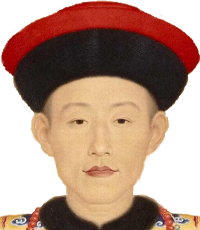Freedom for Uyghuristan!
Xinjiang is the western-most province of China, a so called “autonomous region,” which borders on Kazakhstan and other Central Asian countries. Its population is 43 percent Uighur, who speak a Turkic language and practice Islam, but Han Chinese are almost as many, 41 percent, and the remainder are Kazakhs and other ethnic groups. Less than 5 percent of Xinjiang is suitable for human habitation, the rest consists of deserts and mountain ranges. Although various Chinese dynasties, including the Han, conducted military campaigns here, it was conquered only in 1759, during Emperor Qianlong, and it is only since 1884 that Xinjiang came to constitute a Chinese province. Xinjiang literally means “new provinces” in Chinese.
Two thousand years ago, a Buddhist kingdom, Khotan, was established here. The caravan trade made Khotan prosperous and thanks to rivers running from the Himalayas straight into the desert it was possible to grow fruit and cereal. The people of Khotan cultivated silk and carved jade; they were devout Buddhists, loved literature, and, according to visitors, spent a lot of their time singing and dancing. Some spoke Chinese, others Tibetan and Indian languages. In 1006 CE, the Khotan kingdom fell to Muslim invaders.
Reacting to what they see as attempts to make the region increasingly Chinese, Uyghur nationalists have recently raised demands for independence, and some have fought for their cause by violent means. In July 2009, thousands of Uyghurs clashed with Han Chinese and some 200 people died, although Uyghur nationalists argue that the real death toll was considerably higher. Rioting has since repeatedly taken place and Xinjiang nationalists have been blamed for terrorist attacks throughout China. There have been reports that fighters from Xinjiang have joined Al Qaeda, and in 2006, the US army captured 22 Uyghurs in Afghanistan and sent them to the prison camp at Guantanamo Bay.
In 2018 the Chinese authorities admitted to imprisoning Muslims in interment camps, which they referred to as “reeducation centers.” The aim of these camps, in which up to one million people may have been detained, is to replace Islam with Chinese values. There have been cases of rape of female prisoners. Recently shops in Xinjiang have been forced to start selling alcohol and tobacco; university students have been forbidden to fast during Ramadan; and women wearing veils have been barred from public transportation.
External links
- “Statement by Concerned Scholars on China’s Mass Detention of Turkic Minorities”
- Art of Life, “The Uyghurs of Kazakhstan have been pressured into inactivity”
- ChinaFile, “Beijing’s Long Struggle to Control Xinjiang’s Mineral Wealth”
- Far West China
- Ian Johnson, “The Uighurs and China’s Long History of Trouble with Islam,” NYRB
- Radio Free Asia, ” Behind the Walls: Three Uyghurs Detail their Experience in China’s Secret ‘Re-education’ Camps”
- Radio Free Asia, “Interview: ‘We Give Them a Warning Before Ordering Them to Stand as Punishment’”
- Swedish Mission Project in Xinjiang
- The Guardian, "China: Xi Jinping wants ‘Great Wall of Steel’ in violence-hit Xinjiang"
- The Guardian, "Chinese troops stage show of force in Xinjiang and vow to 'relentlessly beat' separatists"
- The Uyghur Human Rights Movement

